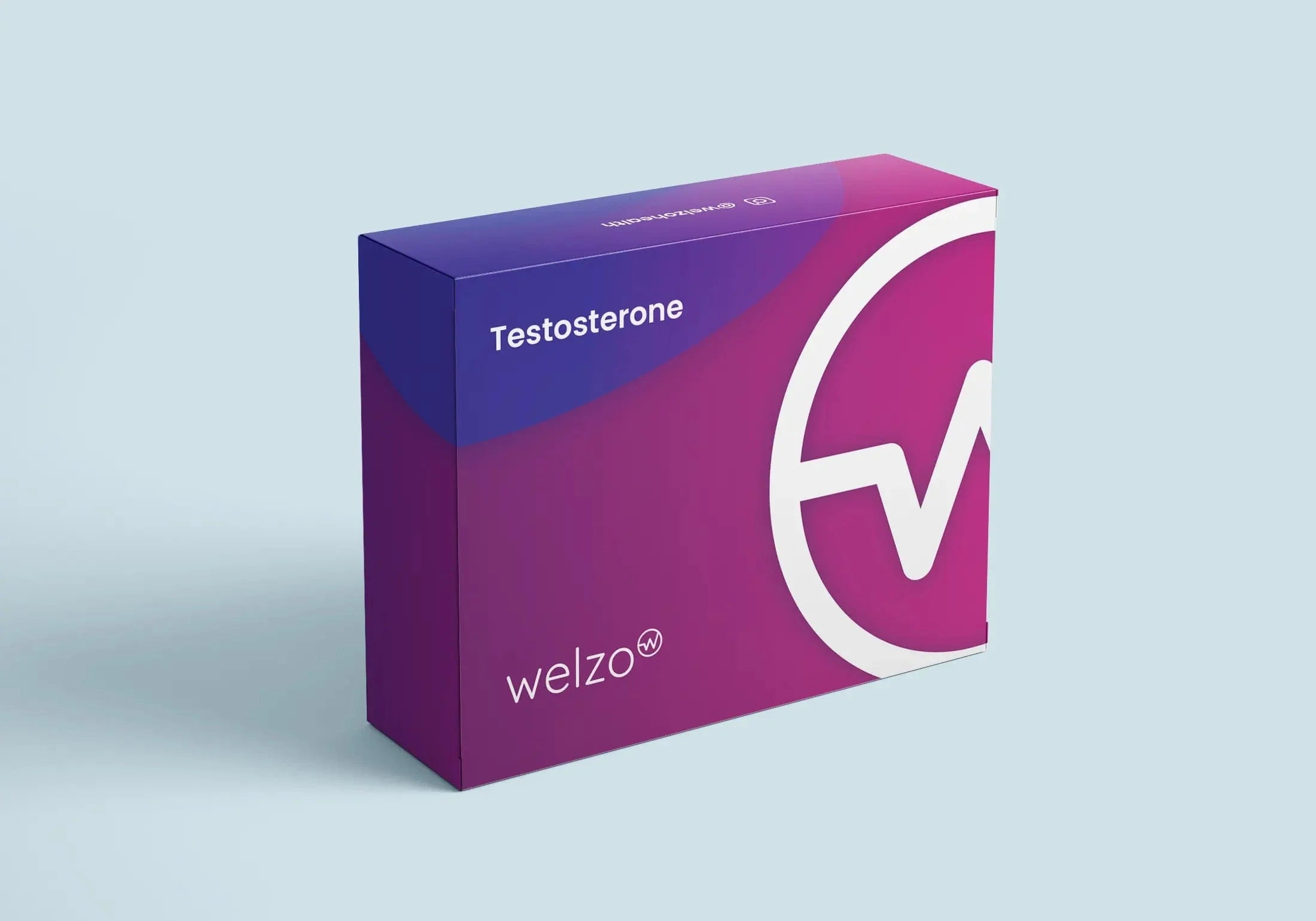The Relationship Between Testosterone and Prostate Cancer


Testosterone, at its very essence, plays a pivotal role in our biological processes. Predominantly known as a male hormone, it's produced primarily by the testicles in men, but the adrenal glands and ovaries in women also produce it in smaller amounts.
The production of testosterone begins in the brain. The hypothalamus signals the pituitary gland to produce and release luteinising hormone (LH) and follicle-stimulating hormone (FSH). LH then stimulates the Leydig cells in the testes to produce testosterone. This entire process is a delicate balance and subject to tight regulation. Understanding how testosterone is regulated is crucial. The body employs a negative feedback system. When testosterone levels are low, the brain sends a signal to increase production. Conversely, when levels are high, the brain signals a reduction. This delicate dance ensures that testosterone remains within the range vital for good health. An interesting example to elaborate on the body's need for regulation can be drawn from medical cases. There have been instances where patients have used external testosterone sources, like gels or injections. These external sources can sometimes disrupt the natural feedback loop, leading to a variety of health challenges. "It's essential to understand that testosterone, like any other hormone, functions best when in balance. Too little or too much can have significant health implications", says Dr. Elaina Richardson.
Testosterone influences various facets of male health. Its prominence starts in the womb itself. During foetal development, it assists in the formation of male genitals. Fast forward to puberty, and it becomes responsible for deepening of the voice, the growth of facial hair and increasing muscle mass. But its roles don't end in adolescence. Throughout adult life, testosterone aids in sperm production and maintains libido. Besides these reproductive roles, testosterone also impacts bone density, muscle strength, and fat distribution. For instance, men with low testosterone levels are found to have a higher risk of osteoporosis, highlighting its significance in bone health. A clear demonstration of testosterone's role can be seen in individuals undergoing testosterone replacement therapy. These individuals often report improved mood, increased muscle mass, and better bone density post-treatment.
The prostate is an essential organ in the male reproductive system. Understanding the interaction between testosterone and prostate cells is vital for many aspects of male health.
Androgen receptors play a pivotal role in mediating the effects of testosterone. Found in various cells, including those of the prostate, these receptors bind to testosterone, initiating a cascade of events within the cell. When testosterone binds to androgen receptors in prostate cells, it modulates the expression of specific genes. This modulation aids in the healthy growth and functioning of the prostate. However, an overactive androgen receptor can become problematic, especially when it begins promoting uncontrolled growth. "Androgen receptors are vital for prostate health, but like everything in biology, balance is key", says Dr. Michael Thompson.
Testosterone has a profound effect on prostate cells, stimulating them to grow and divide. However, this isn't necessarily a negative thing. It's a natural process that becomes problematic only when it gets out of control, leading to conditions like benign prostatic hyperplasia (BPH) or, in more severe cases, prostate cancer.

Buy Testosterone Blood test online here.
This is a million-pound question, one steeped in controversy and numerous studies.
Many studies have been conducted on this link, with some suggesting a connection while others refute it. A comprehensive review carried out by the NHS UK concluded that there wasn't enough evidence to definitively state that high testosterone levels directly cause prostate cancer. However, some studies have shown that men with low testosterone levels may be at a reduced risk of developing aggressive forms of prostate cancer. This creates an intricate picture, demanding more research.
Given the uncertainties, it's essential to debunk the myth that high testosterone levels definitively cause prostate cancer. Many factors play into the onset of this disease, including genetics, age, lifestyle, and more. Testosterone might play a role, but it's one of many actors on a vast stage.
In the UK and beyond, Testosterone Replacement Therapy (TRT) has garnered attention due to its purported benefits for those with low testosterone levels. Yet, like every medical intervention, it comes with its own set of implications.
Testosterone Replacement Therapy has seen a surge in its adoption over recent years. The primary reason is the increasing awareness of the condition known as hypogonadism – a state where the body does not produce enough testosterone. Symptoms range from fatigue, reduced libido, depressed mood, to decreased muscle mass. For many, TRT offers a promise: a return to vitality, a resurgence of libido, and a more vigorous physical state. An ageing population, coupled with a broader understanding of men's health issues, is also driving its popularity. "Many of my patients have reported a renewed zest for life after starting TRT. But it's vital that we also understand the potential risks associated with the therapy," says Dr. Peter Sinclair, a renowned endocrinologist based in London.
Scientific literature presents a mosaic of conclusions on TRT and prostate cancer. Early beliefs, stemming from studies in the mid-20th century, suggested a possible link. However, recent comprehensive reviews have painted a more nuanced picture. A 2020 meta-analysis published in the British Medical Journal assessed multiple studies spanning over a decade. The findings suggested no significant link between TRT and increased prostate cancer risk. However, researchers urged caution, noting that while TRT might not initiate cancer, its role in the progression of pre-existing cancer remains a point of debate.
Given the contemporary nature of the topic, many are turning to search engines for answers. TRT is a hot topic, and understandably, many questions arise, particularly concerning prostate health.
Based on current evidence, men undergoing TRT do not seem to be at a higher risk for developing prostate cancer. However, as always, individual factors and underlying health conditions can play a role. It's essential for men to discuss potential risks and benefits with their healthcare provider.
The prostate is sensitive to testosterone. High levels might stimulate the prostate cells to grow, but it doesn't necessarily lead to cancer. Fluctuating levels can cause symptoms like changes in urinary frequency or urgency, but a direct link to malignancy remains unsubstantiated.
A concern for many is whether elevated testosterone can cause a recurrence of prostate cancer post-treatment. The consensus is still forming. While some studies suggest a potential risk, the majority do not find a strong correlation.
Anti-androgen treatments, often used for prostate cancer, work by reducing testosterone or blocking its effects. The aim is to starve prostate cancer cells of the testosterone they might need to grow. However, this treatment can lead to side effects related to low testosterone levels, such as fatigue or reduced libido.
Patients with advanced prostate cancer often undergo testosterone suppression as it can slow the growth of cancer. This is achieved through medications that lower testosterone or surgeries like orchiectomy.
There is no conclusive evidence directly linking short-term spikes in testosterone to rapid prostate cancer growth. However, continuous elevated levels over time might have implications that are still being researched.
For those who've undergone prostate surgery, monitoring testosterone is essential, especially if they are on TRT. Typically, doctors recommend checks every 3-6 months for the first year, then annually. "Regular monitoring ensures that levels are within the desired range and helps in early identification of potential complications," advises Dr. Simon Harris, a urologist based in Manchester.
Anti-androgens play a pivotal role in prostate cancer management. To understand their significance, it's crucial to unravel the mechanisms by which they function and their interplay with testosterone.
Anti-androgens are a class of drugs designed to inhibit the effects of androgens, male hormones, with testosterone being the most predominant. These drugs work by either suppressing the production of testosterone or by blocking its action on prostate cells. In the context of prostate cancer, these drugs can slow the growth of cancer cells or even shrink tumours by starving them of the testosterone they may need to proliferate. "Anti-androgens have revolutionised prostate cancer treatment. Their ability to modulate the effects of testosterone offers a targeted approach to management," says Dr. Katherine Rogers.
As one would anticipate, anti-androgen therapy often results in lowered testosterone levels in the body. This suppression can lead to side effects commonly associated with low testosterone, including fatigue, mood disturbances, reduced libido, and loss of muscle mass. It's essential for patients to be aware of these potential side effects and for clinicians to monitor and address them accordingly.
While scientific research provides a foundation, personal stories offer insights into the real-world implications of these treatments.
John, a 58-year-old from Liverpool, began TRT after being diagnosed with hypogonadism. A year into his therapy, routine screenings indicated elevated prostate-specific antigens (PSAs). While initially alarmed, further evaluations with his urologist showed benign growth. John's journey underscores the importance of regular monitoring and the complex interplay between TRT and prostate health.
David, a 62-year-old from Bristol, faced a dilemma when diagnosed with prostate cancer. Having been on TRT for muscle wasting, the decision to halt TRT post-diagnosis was challenging. He recalls, "The decision wasn't just about the prostate cancer. It was about weighing the benefits of TRT against potential risks."
Given the intricacies, current guidelines stress a nuanced approach.
Men with existing prostate cancer or elevated PSA levels should exercise caution. The British Urological Association recommends a thorough evaluation, including prostate imaging and biopsy if needed, before initiating TRT.
Routine checks, including PSA levels and digital rectal exams, are vital for those on TRT. If anomalies arise, patients should be re-evaluated for prostate health. Ensuring that patients are well-informed and involved in the decision-making process is paramount.
The relationship between testosterone and prostate cancer is intricate and ever-evolving. As research progresses, our understanding deepens, but it's evident that individualised care is crucial. Each patient's journey is unique, and thus, informed decision-making, rooted in the latest science and complemented by personal stories, remains essential in navigating the nuanced landscape of testosterone and prostate health.








Plus get the inside scoop on our latest content and updates in our monthly newsletter.